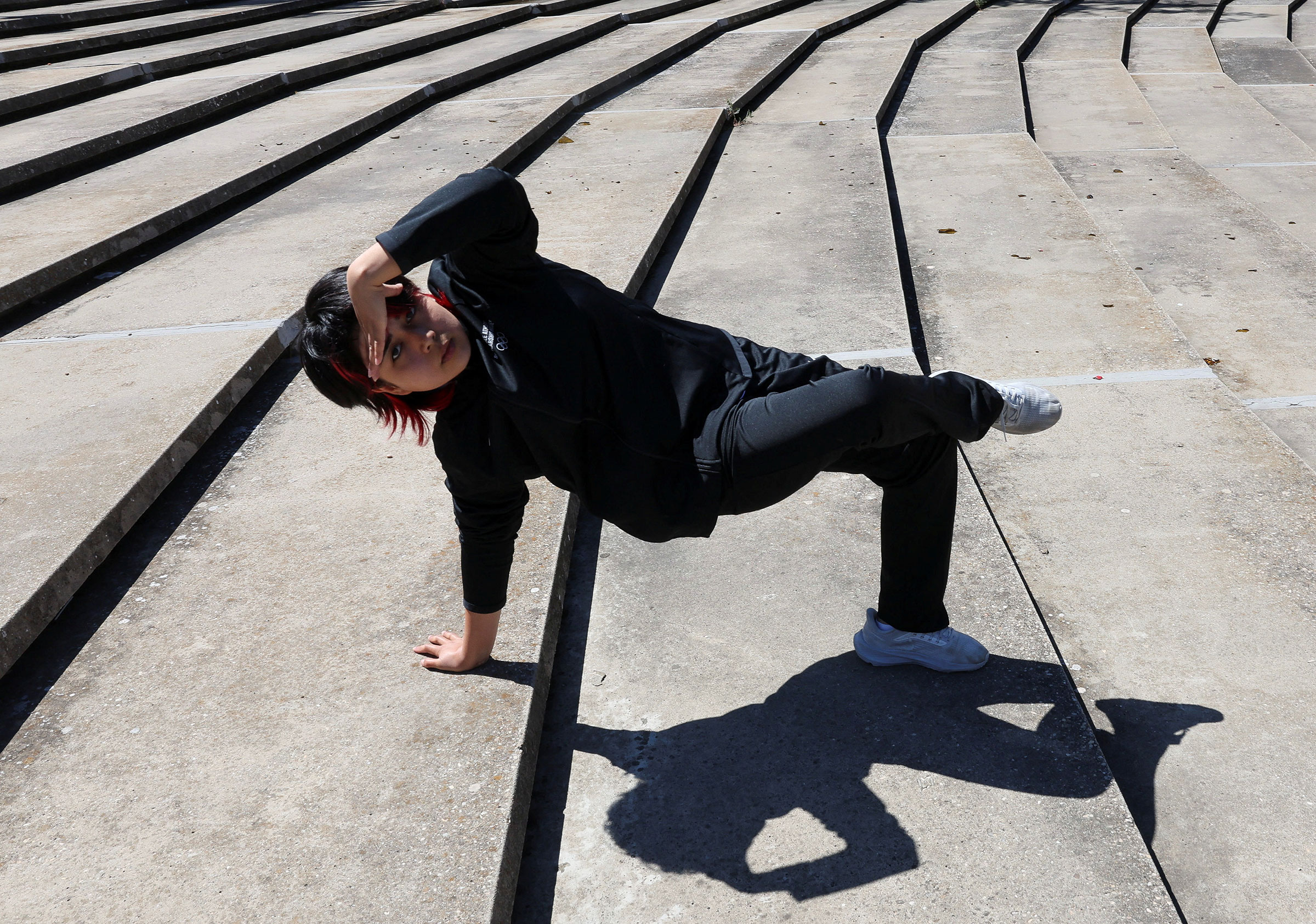Some five years ago, a Kabul teenager named Manizha Talash came across a Facebook video of a young man spinning on his head. She was taken aback. “I couldn’t believe it was real,” Talash tells TIME through a translator. She sought some other clips of people breaking—the pioneering form of hip-hop dance, which includes head-spinning, that is making its debut as an Olympic sport in Paris this summer.
[time-brightcove not-tgx=”true”]
No matter that she didn’t see any girls doing it. Talash, who’s now 21, knew she had to try. So she connected with a breaker named Jawad, who was featured in the first video she saw, and joined his club in Kabul. Out of 55 breakers training there, Talash was the only girl.
Now she’s going to the Olympics. Talash is one of the 36 members – and the lone breaker – on the Refugee Olympic Team, a squad sponsored by the International Olympic Committee (IOC) for athletes displaced from their countries.
Read More: Sunny Choi Is Heading to Paris for Her Sport’s Olympic Debut. Just Don’t Call It ‘Breakdancing’
Talash says she had a “very difficult life” growing up in Afghanistan, which had a poor human-rights record for women and girls even before the Taliban took over. Breaking served as a tonic. “When I am practicing this sport, I’m calm, I’m collected, and I’m only thinking about breaking, not about my problems,” she says. “To me, it’s like a pill to get better.” Still, a strict, conservative society that largely frowned upon both dancing and women’s sports wasn’t about to fully embrace a female breaker. Some members of her extended family disapproved of her dancing. She says she even received death threats. Someone told Talash they hoped the Taliban killed her.
One time a man visited her club in Kabul while Talash and others were practicing. The breakers thought he was there for a media interview, or perhaps wanted to learn more about the sport, she recalls. Law enforcement came rushing in just in time to apprehend the man, who planned to set off a bomb. “The [police] said that, ‘this time we are going to take this person, but we can’t always do it,’” says Talash. “‘It’s very dangerous for all of you.’”
So once Kabul fell to the Taliban in August 2021, following the withdrawal of U.S. troops, Talash and her breaking crew had to make a wrenching choice: live under Taliban oppression and give up breaking, risk their lives in Afghanistan by continuing to break under the Taliban, or leave their families and flee the country to pursue their passion. “If you want to do something to reach your dreams, or want to tell people who you are, where you’re from, and what you want to do, then let’s go,” says Talash. “This is the moment we need to leave.”
Read More: Meet the U.S. Gymnasts Going to the Paris Olympics
So three days after the takeover, Talash and her younger brother, who was just 12 at the time, piled into a car with other members of the crew, dodging Taliban soldiers with guns and whips, and crossed the mountains into Pakistan. She lived illegally without a passport there for about a year, afraid to leave the house where she was staying, acting as a surrogate mother for her brother. He continued to receive threats online. “I want to forget that year, because it was so difficult,” says Talash, who is reluctant to talk about her time in Pakistan.
Talash and six other members of her breaking crew wound up moving to Spain, where they were granted refugee status. (Talash spoke Spanish during our interview.) She got connected to a friend of a friend who alerted the IOC about Talash’s story earlier this year. The Refugee Olympic Team sponsored six-days-a-week training for her in Madrid and named her to the team. Her mother, two other brothers, and a sister were also granted refugee status in late May and joined her in Madrid.
Talash, who says she might try to turn her story into a movie after the Games, hopes to one day return to Afghanistan and represent her homeland at a future Olympics. “If the Taliban leaves in the morning, I would be in Afghanistan by the afternoon,” says Talash. The IOC has said that Afghanistan will have a gender-neutral Olympic athlete delegation, with three women and three men, and no Taliban officials will be allowed to attend the Games. Asked if she had any message for the Taliban, Talash replies: “I don’t want to say anything, because they don’t listen.”
The women’s breaking competition will take place on Aug. 9, at the Place de la Concorde, the largest public square in Paris. B-girl Talash, as she’s known on stage, isn’t even thinking about medals. “Being at the Games and in Paris,” says Talash, “that is winning to me.”
– with reporting by Solycré Burga

